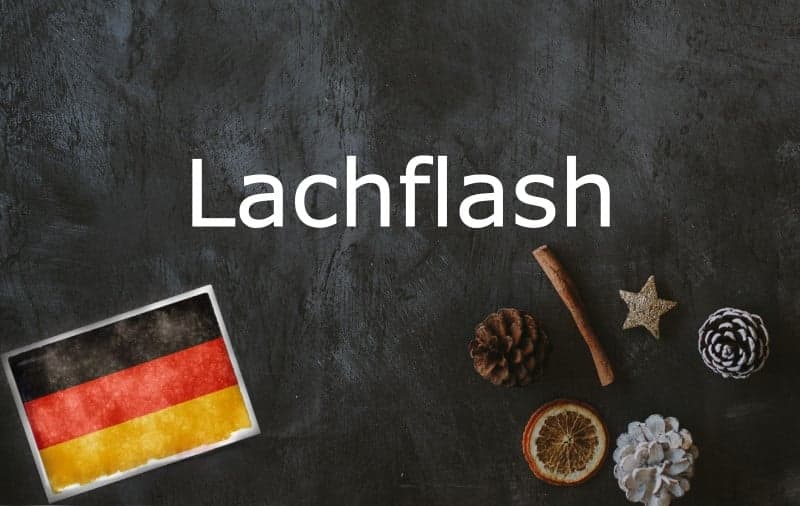German word of the day: Lachflash

If you experienced this today, odds are you are having a good one.
What does it mean?
Der Lachflash comes from lachen (to laugh) plus the word Flash, so it's a flash of laughter—or a laugh attack, as it might be better translated. In more formal German, you would say Lachanfall, or bout of laughter.
In German, Flash generally describes something that makes you feel surprised, overwhelmed or excited, so it's a fitting combination.
READ ALSO: German word of the day: Geflasht
More than a simple burst of laughter, Lachflash best describes a moment when one simply cannot stop themselves from laughing.
This can be especially amusing (and perhaps a bit uncomfortable) when it comes at a time when one would rather be serious. Such as when a TV anchor was trying to present the evening news on the Tagesschau, for example.
Here's how it's used:
Jetzt hat sie einen Lachflash.
Now she has the giggles.
Wenn du einen Lachflash hast, kannst du nicht viel anderes tun, bis er beendet ist.
When you have a laugh attack, you can't do much else until it's finished.
Ich habe meinen Freund vom Zahnarzt nach Hause gebracht, und er hatte im Zug einen Lachflash.
I took my friend home from the dentist, and he had a laugh attack on the train.
Don't miss any of our German words and expressions of the day by downloading our new app (available on Apple and Android) and then selecting the German Word of the Day in your Notification options via the User button.
Comments
See Also
What does it mean?
Der Lachflash comes from lachen (to laugh) plus the word Flash, so it's a flash of laughter—or a laugh attack, as it might be better translated. In more formal German, you would say Lachanfall, or bout of laughter.
In German, Flash generally describes something that makes you feel surprised, overwhelmed or excited, so it's a fitting combination.
READ ALSO: German word of the day: Geflasht
More than a simple burst of laughter, Lachflash best describes a moment when one simply cannot stop themselves from laughing.
This can be especially amusing (and perhaps a bit uncomfortable) when it comes at a time when one would rather be serious. Such as when a TV anchor was trying to present the evening news on the Tagesschau, for example.
Here's how it's used:
Jetzt hat sie einen Lachflash.
Now she has the giggles.
Wenn du einen Lachflash hast, kannst du nicht viel anderes tun, bis er beendet ist.
When you have a laugh attack, you can't do much else until it's finished.
Ich habe meinen Freund vom Zahnarzt nach Hause gebracht, und er hatte im Zug einen Lachflash.
I took my friend home from the dentist, and he had a laugh attack on the train.
Don't miss any of our German words and expressions of the day by downloading our new app (available on Apple and Android) and then selecting the German Word of the Day in your Notification options via the User button.
Join the conversation in our comments section below. Share your own views and experience and if you have a question or suggestion for our journalists then email us at [email protected].
Please keep comments civil, constructive and on topic – and make sure to read our terms of use before getting involved.
Please log in here to leave a comment.